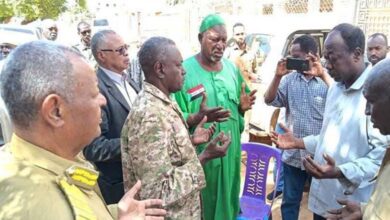Report: Qatar kills journalists

AP revealed that Qatar, the US ‘main ally’ in the Gulf, is facing increasing scrutiny over its ties to terrorism, after the family of a slain US journalist filed a lawsuit accusing the regime in Doha of being responsible for his murder.
The family of Steven Sotloff said in a lawsuit on Friday that prominent Qatari institutions sent $800,000 to an ISIS judge who ordered the killing of Sotloff and another American journalist, James Foley. Both were beheaded in Syria in 2014, and the killing was captured and posted in gruesome propaganda videos.
The Sotloff family said in a statement of their lawsuit: “We want to do everything we can to make sure that no other family has suffered what we have suffered”.
Earlier this year, Biden classified Qatar as a major non-NATO ally. In January, while hosting Qatar’s ruling emir, Tamim bin Hamad Al Thani, at the White House, Biden said: “Qatar is a good friend and reliable partner”.
But Qatar, one of the strongest international backers of the revolt against Syrian President Bashar al-Assad, has long faced criticism from some U.S. officials for allowing or encouraging funding for extremist groups in Syria, as well as for its direct and indirect support for the Muslim Brotherhood and Hamas.
Qatar said it condemns terrorism, but officials also conceded that its efforts may have helped the wrong people. Hamad bin Jassim Al Thani, Qatar’s former prime minister and foreign minister, said in a 2017 interview with American journalist Charlie Rose: “Look, in Syria, everyone made mistakes, including yours”.
He claimed that Qatar had never intentionally funded extremist groups in Syria and cut off funding to any group it knew had another agenda
But Sotloff’s lawyers in the lawsuit said Qatari officials either knew or recklessly ignored the fact that ISIS terrorists funding them would target Americans with kidnapping, torture, and murder.
Foreign states and government officials cannot usually be prosecuted in U.S. courts, but U.S. counterterrorism law allows victims of terrorism to seek compensation from private entities associated with governments.
Qatar Charity and the Qatar National Bank are the main defendants in the Sotloff case, for deliberately facilitating the financing of terrorist groups.
According to the lawsuit, the charity and the bank gave $800,000 to Fadel al-Salem, who arrived in Syria from Turkey and then led an ISIS-affiliated terrorist faction and became a sharia judge.
Sotloff’s complaint also stated that al-Salem signed the legal penalty sentence ordering the killing of Foley and Sotloff, as well as he who led the convoy that was transferred Monday from prison to the place where they were executed.
Qatar Charity and Qatar National Bank representatives did not immediately respond to requests for comment. While the current location of Salam remains unknown, U.S. prosecutors have made significant progress in separate criminal cases against two British ISIS fighters responsible for Sotloff’s death and three other American captives, Alexanda Kotey and El Shafee el-Sheik.
Alexanda Kotey was sentenced to life in prison. Mother Shirley Sotloff said at the sentencing hearing against Kotey: “We will be forever shocked by the loss of our beloved son. We are people living in a horror movie”.
Sotloff’s case in West Palm Beach, Florida, did not reveal how the information in the complaint was obtained, but included a high level of detail, such as a specific bank account number and sections of a handwritten statement acknowledging payments and ISIS judicial records.
The lawsuit also charges that members of the Qatari royal family and government officials worked with the Muslim Brotherhood and Turkish intelligence to fund extremist groups in Syria with the aim of undermining the Assad regime.
Similar charges have been brought against two prominent Qataris who finance terrorist groups in two ongoing court cases filed in London on behalf of Syrian refugees.
Ben Emerson, a London-based lawyer who represents refugees, says there is clear evidence that U.S. officials have chosen to turn a blind eye to Qatari terrorism funding in Syria because the United States needs Qatar’s help in other areas.












